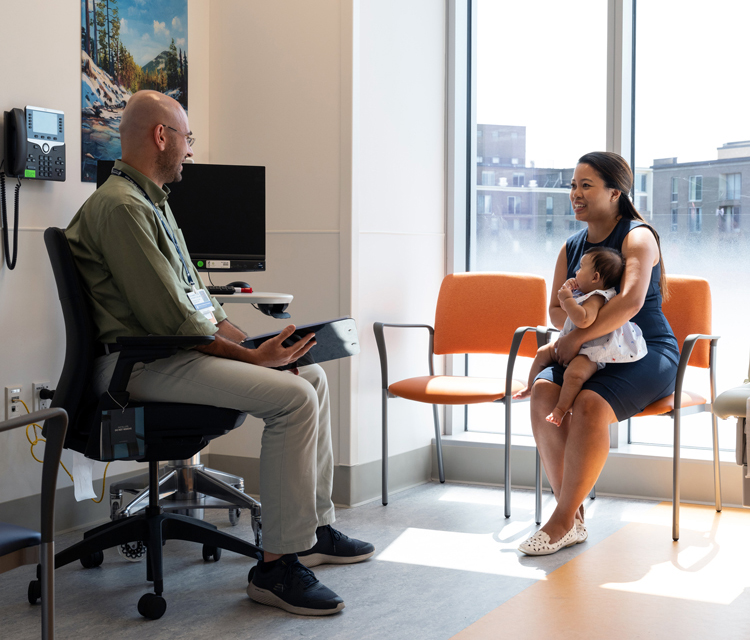For Patient Advocacy Groups
ACTION Initiative
Accelerating Clinical Trial Readiness Innovations for Monogenic Neurodevelopmental Disorders (ACTION)
The Rosamund Stone Zander Translational Neuroscience Center (RSZ TNC) aims to collaborate with patient advocacy organizations for rare and ultra-rare monogenic, neurodevelopmental disorders (NDDs) to advance clinical care and translational research. The ACTION Initiative is a longitudinal natural history protocol for rare monogenic neurodevelopmental disorders (NDDs). The goal of this project is to build clinical trial readiness through the generation of validated endpoints and biomarkers for such conditions. This initiative will provide longevity and targeted support for rare NDDs that individual patient advocacy organizations may not be able to achieve on their own.

The protocol provides a basic framework for standardized data collection that can be customized to fit the specific needs of each NDD cohort that participates. Data collection includes annual visits with the study team, medical record reviews, neurobehavioral questionnaires and assessments, quality of life assessments, research EEGs, biological sample collection, and photograph collection. Expert units of the RSZ TNC, including the Translational Genomic Medicine Core, Human Neurobehavioral Core Service, Human Neuron Core, and Clinical Neurophysiology Research Core, will collaborate to carry out the protocol.
Our current ACTION cohorts
IDefine- Kleefstra Syndrome
Kleefstra syndrome (KS) researchers and members of the RSZ TNC, including Dr. Siddharth Srivastava, Dr. Maya Chopra, Abigail Sveden, and Zoë Frazier, developed a comprehensive KS and neurobehavioral-specific data collection measures for ACTION. Data collection occurs annually for three years, and includes interviews with the participant’s family, physical and neurological exams, medical record reviews, a KS-specific neurobehavioral battery, optional research EEGs, optional Fitbit, optional biological sample collection, and optional photograph collection. While in-person data collection will be prioritized, all study components (apart from the research EEG and sample collection) may be completed virtually, increasing the accessibility of the initiative to participants who are unable to travel to Boston Children’s Hospital.
The study will include 30 participants ages 2 – 21 years with a known diagnosis of KS based on molecular confirmation (chromosomal deletion of 9q34.3 including EHMT1 or a likely pathogenic or pathogenic variant within EHMT1).
MED13L Foundation – MED13L
The MED13L Syndrome cohort of the ACTION Initiative, led by geneticist, Dr. Maya Chopra and neurologist, Dr. Sara Trowbridge, has been established in collaboration with the MED13L Foundation. Data collection for the cohort leverages RSZ TNC resources shared across several Natural History Study cohorts, with neurobehavioral assessments and medical history collection designed specifically for MED13L Syndrome. Data collection will occur annually for three years and will include an interview with the study team, physical and neurological exams, neurobehavioral assessments and questionnaires, medical record collection, and optional collection of photographs and/or blood samples. Participants may complete data collection in-person at Boston Children’s Hospital or virtually, with the option to complete initial data collection at the MED13L Foundation’s 2025 Research and Family Meetup in Waltham, MA.
MED13L Foundation 2025 Research & Family Meetup >
The study will include 30 participants 2 years and older with a known diagnosis of MED13L Syndrome based on molecular confirmation (likely pathogenic or pathogenic variant within MED13L).


